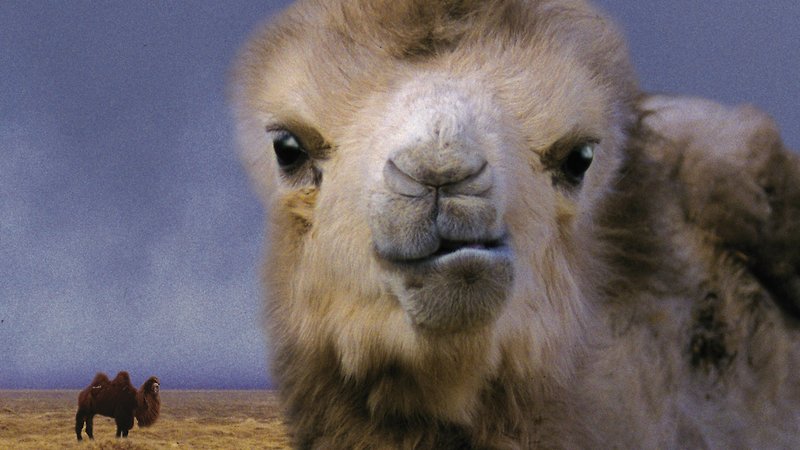
Much of the drama stems from the imposing, regal mien of the camels themselves, ornery critters who seem to be simply tolerating humans in their midst.
Screened as part of NZIFF 2004
The Story of the Weeping Camel 2003
Die Geschichte vom Weinenden Kamel
This singular film – documentary and drama both – makes exquisite use of its Gobi Desert setting to provide us with a unique glimpse into the lives, rituals and music of nomadic Mongolian shepherds. It is spring in South Mongolia and one of the camels has a very difficult time giving birth. When she finally succeeds in delivering, the baby turns out to be an extremely rare white calf. Despite the efforts of the shepherds, the mother rejects her offspring and refuses to feed it. As the shepherds labour to cement the maternal bond, we’re given extraordinary insight into a highly evolved symbiosis of man and beast. Intimate and never intrusive, directors Davaa and Falorni quietly observe the inherently fascinating nature of their subjects and the vast and beautiful landscape that surrounds them.
“This ethnographic documentary began as an attempt to capture the dying traditions of Mongolian camel herders and ended up as a portrait of the bond between a mother camel and her estranged newborn – as well as a bona fide film-fest sensation. It’s hard to believe that The Story of the Weeping Camel is a German student film, what with directors Luigi Falorni and Byambasuren Davaa seamlessly capturing the interactions of both humans (including one cute kid called ‘Dude’) and two-humped animals alike, in addition to assembling what must have been an immense amount of footage with great storytelling acumen.” — Mark Peranson, City Pages
“The filmmakers’ patience and the quality of the images they obtain give a mellow contentment to the project, a thoughtful and honest serenity.” — Elvis Mitchell, NY Times